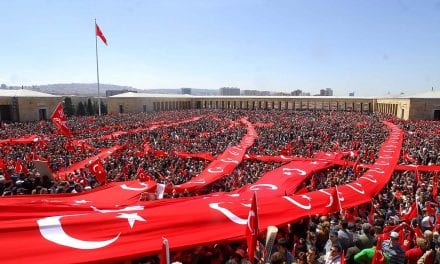Even if Greece’s government manages to strike a last-minute deal with its creditors, it will be hard to get it approved back at home
The Economist
WHILE Alexis Tsipras, the hard-pressed Greek prime minister, was struggling in Brussels to win concessions on a new bail-out deal, Alekos Flambouraris, his state minister, stayed in Athens to soothe angry members of his Syriza party. Its far-left faction feared that Mr Tsipras was about to cross his “red lines” and accept a tough austerity package, just as his predecessors had done in 2010 and 2012.
Greece desperately needs a deal: its terms were being fought over as The Economist went to press. Without one, it cannot pay pensions on June 30th, the day the current bail-out expires, and will also default on a €1.5 billion ($1.7 billion) debt to the IMF. If the bail-out is not renewed, Greek banks may lose the “emergency liquidity assistance” they have been getting from the European Central Bank. This has enabled the banks to survive six months of accelerating withdrawals by frightened depositors. By one recent estimate, €45 billion is now stashed under Greek mattresses. Without the ECB, capital controls would have been imposed, stifling an economy weakened by six years of recession.
Yet the terms of any new bail-out are going to be tough. Greece’s latest proposals to release the rest of its €7.2 billion bail-out, greeted as “positive” by its European creditors, were quickly unpicked by the IMF. A leaked list of “prior actions” (which must be legislated by Athens before any new aid is disbursed) drew various red lines through plans to avoid spending cuts by increasing taxes. A one-off tax of 12% on corporate profits above €500,000, the biggest single revenue-raiser, was struck out altogether. The creditors argued that putting such heavy emphasis on higher taxes would drive the country deeper into recession, pushing unemployment past 30%.
Mr Tsipras fought hard to avert more cuts in pensions, which he had promised to protect. Many of Greece’s 2.9m retirees have seen their pensions slashed by 45% since 2010. But the IMF wanted a new cut of €1.8 billion in pension spending by reducing incentives for early retirement and abolishing a top-up scheme for low-income pensioners. Mr Tsipras gave way to IMF demands on value-added tax, agreeing that most goods should come under the highest 23% rate, and scrapping the 30% discount enjoyed by Aegean islanders.
Getting even this close to a deal has been a bruising experience. It will also be hard to sell. Mr Tsipras came to power in January pledging to end austerity but at the same time to ensure Greece stayed in the euro. He claimed he could extract billions from the country’s European partners to rebuild the economy and persuade the IMF to reduce Greece’s mountainous debt, equivalent to 180% of GDP. In return, Greece would crack down on tax evaders and curb the influence of “oligarchs” who dominate economic activity. Unemployed young Greeks rushed to vote for Syriza and its charismatic 40-year-old leader. Older voters were reassured that veteran leftists like Mr Flambouraris were allies of the inexperienced Mr Tsipras.
Syriza still has a big lead in the polls over its closest rival, the centre-right New Democracy party, even though Greeks have become more critical of Mr Tsipras’s handling of the bail-out negotiations. Some of the prime minister’s toughest opponents come from his own party. Extremists in its far-left faction now say Greece should abandon the euro and readopt the drachma. But the party mainstream, representing about 60% of members, has remained loyal to Mr Tsipras. In the parliamentary group, some 20-30 of his 149 deputies could vote against the government when a new deal is put to a vote.
That could in theory scupper the deal even if, as expected, all 12 deputies from Independent Greeks, Syriza’s right-wing coalition partner, back it. But pro-European parties in New Democracy and the small centre-left To Potami (The River) party will vote in favour to ensure Greece stays in the euro. That would be humiliating for Mr Tsipras, and it could also undermine his position as Syriza’s leader. One challenger might be Yanis Varoufakis, the outspoken finance minister, who may refuse to put his signature to a new bail-out deal. Another might be Zoi Konstantopoulou, the authoritarian parliamentary speaker.
Mr Flambouraris has told his ten-member political committee that they must work fast to rally dissident lawmakers. Any new deal, including the prior actions, has to be rushed through parliament under emergency procedures by midnight on June 28th. The ECB may then find a way for the Greek government to raise enough money to pay pensions and the IMF. Weary Greeks would breathe a huge sigh of relief—but only until the next crisis.



















